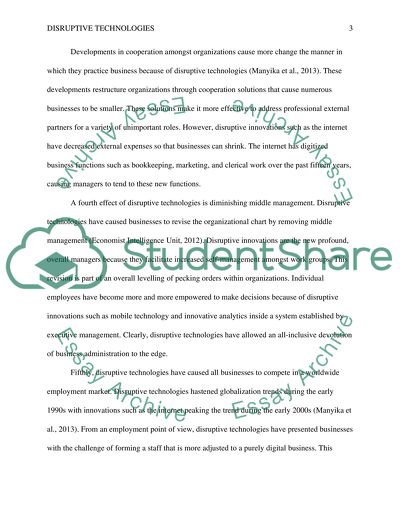Cite this document
(“The effects of disruptive technologies in the business practices of Essay”, n.d.)
The effects of disruptive technologies in the business practices of Essay. Retrieved from https://studentshare.org/information-technology/1679122-the-effects-of-disruptive-technologies-in-the-business-practices-of-the-time-period-related-to-disruptive-technology-speculate-about-the-next-disruptive-technology-that-may-occur-in-the-field-of-publishing
The effects of disruptive technologies in the business practices of Essay. Retrieved from https://studentshare.org/information-technology/1679122-the-effects-of-disruptive-technologies-in-the-business-practices-of-the-time-period-related-to-disruptive-technology-speculate-about-the-next-disruptive-technology-that-may-occur-in-the-field-of-publishing
(The Effects of Disruptive Technologies in the Business Practices of Essay)
The Effects of Disruptive Technologies in the Business Practices of Essay. https://studentshare.org/information-technology/1679122-the-effects-of-disruptive-technologies-in-the-business-practices-of-the-time-period-related-to-disruptive-technology-speculate-about-the-next-disruptive-technology-that-may-occur-in-the-field-of-publishing.
The Effects of Disruptive Technologies in the Business Practices of Essay. https://studentshare.org/information-technology/1679122-the-effects-of-disruptive-technologies-in-the-business-practices-of-the-time-period-related-to-disruptive-technology-speculate-about-the-next-disruptive-technology-that-may-occur-in-the-field-of-publishing.
“The Effects of Disruptive Technologies in the Business Practices of Essay”, n.d. https://studentshare.org/information-technology/1679122-the-effects-of-disruptive-technologies-in-the-business-practices-of-the-time-period-related-to-disruptive-technology-speculate-about-the-next-disruptive-technology-that-may-occur-in-the-field-of-publishing.


